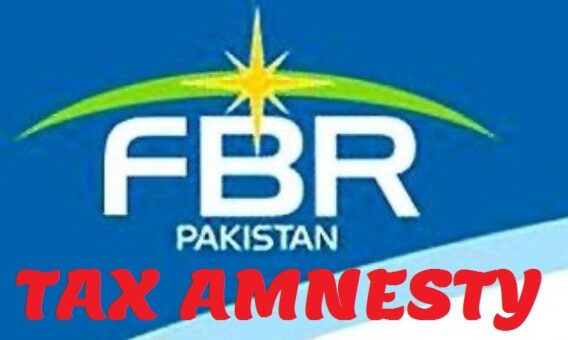ISLAMABAD: The Federal Board of Revenue (FBR) has explained tax amnesty granted on equity investment for already existing or new industrial under taking.
The government has granted immunity from questioning of source of funds through Income Tax (Amendment) Ordinance, 2022.
A new section 100F has been inserted to the Income Tax Ordinance, 2001 to give immunity from probe under Section 111 of the Income Tax Ordinance, 2001.
READ MORE: Tax amnesty launched for setting up new industrial units
To explain this important change, the FBR issued an explanation circular No. 13 of 2022.
The FBR said in order to promote industrialization in the country, immunity from probe under section 111 of the Ordinance has been granted on equity investment made by eligible persons in a new company formed for establishing an industrial undertaking or to an existing company being an industrial undertaking (for investment in expansion and modernization) after paying an amount of tax equal to five percent on such investment and upon fulfilling other conditions as mentioned in this section.
The amount of undeclared funds for investment has to be credited into a dedicated bank account of such company before due date of filing of statement i.e. September 30, 2022 and can only be used either for purchase or import of plant and machinery including IT hardware through a letter of credit or software and IT services, or for construction of building and structure in case of new industrial undertaking and for construction of only manufacturing premises in case of existing unit.
The term modernization has been defined in this section which includes acquisition or upgradation of IT hardware, software and IT services.
READ MORE; FBR launches new Active Taxpayers List; return filing grows by 58%
The minimum qualifying equity investment to avail benefit under this section is Rs50 million.
The tax paid under this section is not refundable or adjustable against any other tax liability of the company and the declarant will be entitled to incorporate the amount of declared funds in his wealth statement, financial statements or books of accounts as the case may be.
The industrial undertaking established under the provision of this section, as the case may be, will have to commence its commercial production by June 30, 2024 and a certificate issued by the Engineering Development Board to that effect is required to be furnished by the company with income tax return for tax year 2024.
READ MORE: POS invoice verification for prize scheme surges by 63%
In case of misrepresentation or suppression of facts, statement filed under sub-section (1) will be treated as void ab-initio and all the provisions of Income Tax Ordinance, 2001 will apply accordingly. It is emphasized that investment opportunity offered to investors under this section is not an amnesty scheme. Rather, it is a conditional tax concession.







